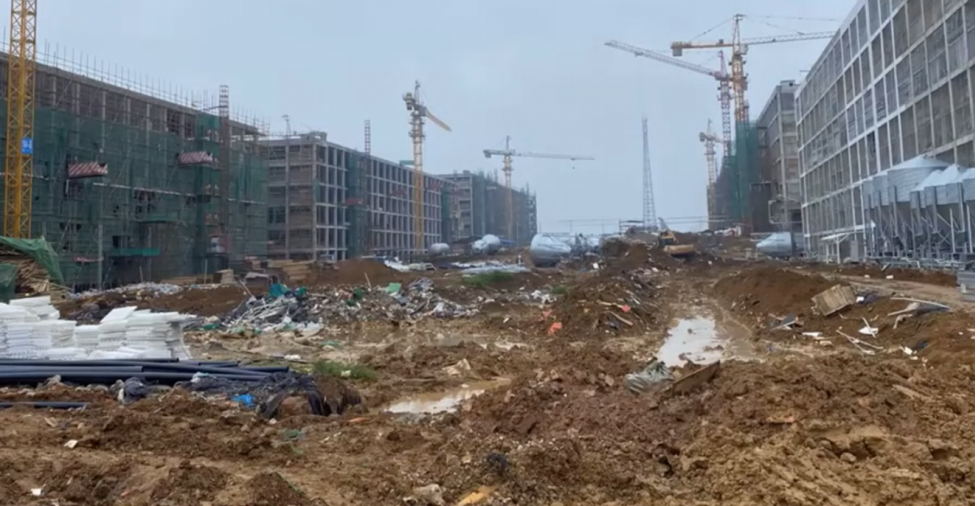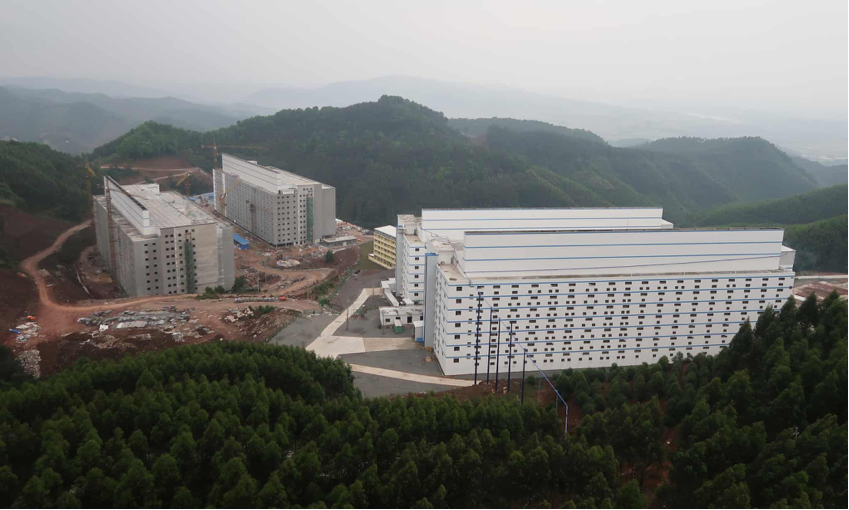John Phipps: Hog Hotels? China's Megaplex Hog Buildings
U.S. Farm Report 06/12/21 - John's World
By now, if you follow any ag media, you’ve probably seen pictures like this. Multi-story hog farrowing and finishing buildings, often in megaplexes with tens of thousands of pigs. I call them styscrapers.

Like most Chinese industrial developments, there are good reasons for why these facilities are popping up. First is the shortage of farmland. China still has around a half-billion individual farmers and a significant portion of their hog production is from these tiny farms. Despite efforts to consolidate farms and move people to cities, the traditions of land tenure – remember the state owns all the land – and the problem of what would these farmers do in the cities, recent events have added a new impetus favoring huge facilities, namely African Swine Fever (ASF), which decimated maybe half their hog population in the last three years. ASF is virtually impossible to contain on tiny farms, but these new operations implement isolation practices that seem to provide solutions. Workers live on site, for example, in what are essentially dormitories except for specific intervals. This idea was perfected by their computer industry, such as FoxConn. All traffic undergoes decontamination worthy of a nuclear reactor site.

But it was this picture that truly fascinated me. This is a huge hog building on top of a mountain. Crudely put, my first thought was “surely they know stuff flows downhill”. Then I began researching as best I could how these pork megaplexes solve one of producers’ biggest headaches – how to handle the immense amount of manure. Almost surely the Chinese have answers, but all I could find was references to waste treatment facilities. How they distribute it over thousands of tiny farms baffles me. Or they may be simply ignoring these problems, polluting rivers and overloading without regulation. Even dried to solid form, the problem of phosphate loading on farmland, not to mention nutrient runoff, is a formidable challenge. If viewers know how these megaplexes handle manure, I would appreciate a link.
This raises for me a larger question: if such waste technology is in use in China, why not here? Has our relative abundance of farmland allowed us to fall behind in waste technology? Pictures this winter of Midwest manure being spread on frozen farmland does not reassure that our pork producers are rising to the significant nutrient, odor and sanitization challenges. Are there solutions in China we can reverse engineer just like they have in other industries?







